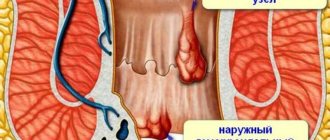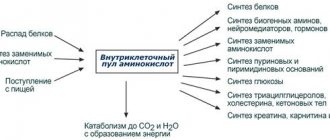A common situation in life. Here are people who eat approximately the same, but one suffers from a duodenal ulcer - PUD - and the other is completely healthy. One person suffers from gastritis and constant indigestion; he is found to have Helicobacter pylori during examination, while the other is fine.
Doctors classify gastric ulcers and peptic ulcers as psychogenic diseases, as there is a connection with the state of the nervous system, psyche and attacks of the disease. In the language of psychotherapy, this is a real psychosomatic illness. What factors from mental life influence the development of psychosomatics of the digestive organs?
Have you noticed that:
- Do heaviness, pain, abdominal cramps, nausea, bloating, bowel disorders appear when you are tense, upset or stressed?
- Symptoms of digestive disorders are not related to the nature of your diet - do discomfort appear even when you follow a strict diet?
- In addition to digestive disorders, do you experience uncertainty, anxiety for no reason, guilt, fatigue, have you developed sleep and appetite disturbances, has your weight changed?
Did you answer “yes” to at least one? You are in the “company” of those who suffer from psychosomatics. Such patients see a gastroenterologist - 6-7 out of every 10.
What is psychosomatics and how does it manifest itself: the opinion of a psychologist
One of the main requests with which people often turn to the Moscow Psychological Assistance Service is anxiety and stress. Experts note that it is imperative to work with these negative emotions, since they can have a serious impact on human health. Psychologist Elena Gerasimova talks about what psychological causes cause somatic disorders, what psychosomatics is and how it manifests itself.
In life, we constantly accumulate mental stress, and our body reports that something is wrong with it. This phenomenon is called a “psychosomatic disorder.” Psychosomatics is a branch of medicine and psychology that studies how feelings and experiences affect a person’s physical health.
Psychological reasons that can cause somatic diseases:
- Lack of positive emotions (low mood, anxiety, depression, stress). A person needs positive impressions no less than vitamins.
- Negative destructive thoughts directed at oneself or at other people: “everything is bad.”
- Repeating certain phrases that provoke health problems (for example, the phrase “I can’t see you” can lead to myopia).
- Voluntary “transfer” of the illnesses of someone close to you (identification).
- Exhausting feelings of guilt, self-flagellation.
- Self-hypnosis under the influence of sources that are authoritative in a person’s opinion (information from encyclopedias, the Internet, television).
- Manipulation of a non-existent, fictitious illness (with the help of an illness a person tries to organize the actions and feelings of other people).
When your heart hurts
25-year-old Muscovite Margarita turned to a psychologist. The girl dated a young man, Ivan, for two years. She dreamed of getting married and starting a family. Ivan, on the contrary, was happy with everything. He was in no hurry to formalize the relationship legally, because he believed that there was no need to rush, he needed to live for himself. The girl more than once raised the conversation about marriage and having children, but the young man answered irritably: “Why do we need formalities? We feel so good together! Are you ready to be a mother at all? These baby diapers, screams and all that? You yourself are used to silence, but the child will constantly demand attention. If you want, babysit your niece.” This answer, which was not received for the first time, did not suit the girl, and another scandal broke out between the couple. Accusations of Ivan being frivolous and irresponsible began. But he continued to stand his ground.
The young people decided to separate for a while. Everyone thought about their own. Margarita was very worried, she began to suffer from frequent headaches, insomnia, loss of appetite and heart rhythm disturbances, and her blood pressure periodically increased. My health worsened and I had to see a doctor. The examination did not reveal any pathology. The doctor recommended that she see a psychologist.
“Functional heart rhythm disturbance is a reaction to conflict situations, anxiety, when a person takes everything to heart. There is a connection between fear and heart rate. Blood vessels regulate the autonomic nervous system, which is connected to our emotions and directly interacts with feelings,” notes the psychologist.
Mental stress, conflicts and worries lead to contraction of smooth muscles, changes in the condition of blood vessels and, as a result, increased blood pressure, heart rhythm disturbances, and chest pain. Fear can cause increased heart rate and heart pain, and conversely, pain with an altered heart rate can cause fear. Both processes increase their impact on each other and uncontrollably turn into an attack.
How can you help yourself
At the moment a familiar pain occurs, remember all the details of the situation: what actions you performed, what you looked like, what sensations you felt, what you thought. If you were talking with someone at this time, be sure to remember the words of your interlocutor and your thoughts about them. This will help you analyze and determine what exactly you are reacting to.
The following psychosomatic disorders are distinguished:
- diseases:
- cardiovascular system (hypertension, coronary heart disease are the most dangerous, as they lead to strokes and heart attacks);
- gastrointestinal tract (gastric and duodenal ulcers, ulcerative colitis);
- endocrine (diabetes mellitus, Graves' disease - thyrotoxicosis);
- respiratory system (bronchial asthma);
- skin system (neurodermatitis, scabies on certain parts of the body);
- musculoskeletal system (rheumatoid arthritis, osteochondrosis);
- headaches (tension pain - muscle pain in the neck, back of the head, temples, pressing dull pain, combined with other pain, for example, pain in the legs; pain that covers the “whole head”, paroxysmal, sharp, throbbing, not combined with other pain; pain unilateral, sometimes covering both sides);
- oncological diseases (tumors, neoplasms);
- vegetative neuroses — in the first place are vegetative symptoms (no organic lesions):
- cardioneurosis - extends to the cardiac system;
- hyperventilation syndrome - a pathological condition similar to asthma, without organic damage, spreading to the respiratory system (with all organs intact);
- panic attacks - manifested in a powerful vegetative shift (impaired cardiovascular activity, gastrointestinal tract, feeling of lack of air, increased blood pressure, feeling of fear, anxiety, tremors, etc.);
- hysterical conversion - hysterical symptoms can be manifested in any disease; they arise when a person wants to achieve a certain goal through demonstrations and manipulations.
When a fictional disease becomes reality
27-year-old Victoria, at the insistence of her mother, received a higher education in economics, but did not want to work in her specialty. Her boyfriend offered various employment options, but the girl found any excuses and reasons not to work. She liked a carefree life, and she didn’t want to change anything. The young man was sent on a business trip for a week; he recommended that the girl find a job, as she might have financial difficulties. Having promised to look into this issue, three days later Victoria became bored. She spent most of the money left for groceries on an expensive dress and decided to ask to visit a married friend: “there will always be something to eat there.” Victoria quickly grew tired of the gatherings, since her friend’s four-year-old daughter required constant attention. Vika began to get irritated, because she came to share her problems, but here the child does not allow her to talk calmly! The girl left the house.
When the young man returned, the first thing he did was inquire about Victoria’s progress in finding a job, and was involved in a colorful story about fruitless unsuccessful interviews with a demonstration of a new dress. The young man was angry at the prank, and he gave an ultimatum: either Victoria looks for a job, or they separate. The girl did not expect such a turn of events. What to do?
The next morning, Victoria complained of feeling unwell, citing pain in the heart, weakness, dizziness and nausea. Victoria feigned illness, deciding to stall for time. After a week of continuous “poor health,” the young man took Victoria to the doctor for examination. The results showed complete health. Having confirmed the deception, the man decided to leave. Vika tearfully begged him to save the relationship, claiming that she was “really bad” and needed help. The young man gave her a second chance. After some time, one morning the girl woke up from severe pain in the chest and shortness of breath. She got scared and went into loud hysterics. An ambulance was called. This time Victoria did not pretend, real symptoms appeared. She was sent for treatment to a neurosis clinic with a diagnosis of psychosomatic disorder. After successful treatment, Victoria turned to a psychologist.
Exercises that will help improve your condition:
"Candle"
Imagine that there is a large candle in front of you. You need to take a deep breath and try to blow it out with one exhalation. Repeat. Once again.
Now imagine that you need to blow out five small candles. Take a deep breath and blow them out one by one in small portions of exhalations. Repeat. Once again.
“My illness in the drawing”
Draw and tell it to yourself or someone close to you:
- How did you find out about the disease?
- How did you change when this happened?
- What is the worst thing you imagine about your illness?
- What happens when you recover?
- What does being healthy and strong mean to you?
- How do you see yourself in the future?
«Sun"
Draw a sun with rays and write your positive qualities on these rays. Read them out loud to yourself or someone close to you.
See how many positive qualities you have! There is something to praise and love yourself for. Do this often!
You can learn more about psychosomatics and get answers from a psychologist to your questions from specialists of the Moscow Psychological Assistance Service, both in individual consultations and during webinars. You can sign up for consultations and online classes on the website.
Source
Press service of the Department of Labor and Social Protection of the Population of Moscow
Where does psychosomatics come from, or what really distinguishes us from animals?
When you are faced with a serious problem in work or relationships, your body, figuratively speaking, is preparing for a fight when the adrenaline “goes off scale” and your heart is pounding. Or you want to run and hide. What is called the “fight or flight” response.
What kind of digestion can we talk about in such a stressful situation? The gastrointestinal tract simply “turns off.” This is where the differences lie. After a fight, the animal hides in a secluded place and rests. The person continues the “battle” or “replays” the situation of defeat in his head. The body continues to work under stress. And illnesses do not take long to appear.
Psychotherapy for psychosomatic gastrointestinal diseases
Psychotherapy for psychosomatics of the stomach and intestines consists of turning off the stress mode of the body - digesting food normally, restoring the mucous membrane of the stomach and intestines, healthy microflora - this can only be done at rest, and not under tension.
Psychotherapy techniques include hypnosis, autogenic training, training and development of coping strategies.
If you are diagnosed with DU, PU or IBS, you must take the treatment prescribed by the gastroenterologist. And run straight to a psychologist or psychotherapist.
What digestive diseases are caused by nerves, and when is it time to see a psychotherapist?
Stress and nervous tension always affect the gastrointestinal tract. It is one of the first to be hit by stress - it is figuratively called the “sounding organ of emotions.” After all, the first emotions of man and animal were associated with the pleasure of eating. In turn, diseases of the gastrointestinal tract are often accompanied by disturbances in the psycho-emotional sphere. Everything affects everything.
Therefore, if you suffer from:
- pain in the upper abdomen, stomach area, heaviness or cramps
- vomiting immediately after eating, regardless of the quality of food
- sensation of a “lump in the throat”, swallowing problems, spasms of the esophagus
- bowel dysfunction - bloating, rumbling, constipation, diarrhea or their alternation, imperative urge to defecate in an uncomfortable situation
AND:
- you go from one gastroenterologist to another, conducted a series of examinations, no changes were found, and there is no result of treatment
- you feel better for a while, but all the symptoms return during stress
- you see a connection between your physical symptoms and your emotional state, but can't figure out how to deal with it
- you are depressed, you have been in a bad mood for more than a month - contact a competent gastroenterologist and psychotherapist.
Remember: psychosomatics is a diagnosis of exclusion. There are “masks” of diseases, and first you need to make sure that there is no organic cause for the symptoms.
Stress and psychosomatics of the stomach and intestines
The French physiologist Hans Selye developed the theory of stress by studying patients with various diseases and the wounded. He discovered the same symptoms in completely different body lesions and diseases, and described a syndrome that is caused by different damaging agents. As a result, he developed the theory of stress, for which the level of action of stress factors and the duration of their action are important. His experiments with laboratory rats established a cause-and-effect relationship between stress and peptic ulcers. That is, if an ordinary rat in a cage is exposed to regular stress, it gets sick and its digestive organs suffer. Psychological testing and observation of patients extends the theory of the occurrence of psychosomatic gastrointestinal diseases to people.
People's tolerance to stress varies greatly. And most importantly, strong exposure to stress produces psychosomatic reactions only if the body cannot respond adequately to a specific stress factor.
Stress occurs for a variety of reasons - as a result of family problems, loss of work, separation from a loved one, loss of a loved one due to his death. Divorce, betrayal - all this leads to severe stress. All the troubles and rush work at the enterprise can also be the cause of the development of digestive psychosomatics - peptic ulcers of the stomach and duodenum; irritable bowel syndrome is also known - IBS, which torments patients with frequent diarrhea, indigestion, and abdominal pain. But stress does not always lead to gastrointestinal diseases.
The strength of the stress factor can be great, and the person copes. But only for a limited time - then, to continue resisting troubles and facing serious problems, you need serious rest and recovery. A change of scenery. This is how animals act - having received some kind of damage or injury - they hide and try to rest in stillness with minimal activity. Sometimes a person does not have time to notice this fatigue. It happens that there are no conditions to rest.
To cope with stress, it is very important for a person to have a supportive environment, a favorable environment in relationships with friends and family members. In fact, more often than not, friends are the first competitors, and competitors cannot provide support. Family structure and functioning may also be disrupted - especially if psychological problems make home life an additional stressor and the person does not get rest at home - and he is stressed at work and does not get rest at home.
What are the dangers of “nerve diseases”?
- Stress due to poor health - you have to constantly control yourself, limit yourself, change your lifestyle, experience your difference from others.
- Waste of time and money - the patient goes to doctors as if going to work, but there is no result.
- Side effects of medications – Too many unnecessary medications can make your health problems worse.
- Loss of motivation - the patient becomes disappointed, begins to think that he cannot be helped, and may stop receiving treatment altogether.
- Relationships in the family deteriorate - loved ones are involved in all the “vicissitudes” of the disease.
How do negative emotions affect the risk of development and course of cancer?
So, negative emotions do not directly lead to cancer, but they often make a person more prone to so-called risky behavior. And it increases the risk of developing cancer.
Not knowing how to cope with external and internal conflicts, and not seeing a way out of a difficult life situation, many people begin to smoke, drink alcohol more often, systematically overeat, and give preference to unhealthy foods. All these are risk factors for the development of malignant tumors. This occurs in conditions such as chronic stress, depression, anxiety disorder, and neuroses.
We can name many examples of risky behavior that contributes to the development of cancer in a non-obvious and very indirect way. For example:
- A person tries to “escape” negative experiences into work, takes more shifts, works at night. Some scientific studies have shown that working night shifts increases the risk of developing certain cancers, particularly breast cancer. In addition, some professions involve contact with substances related to carcinogens.
- Someone looking for release in promiscuous sexual intercourse increases the risk of infection with the human papillomavirus, which can cause cancer of the cervix, vulva, vagina, penis, oropharynx, and anus.
- A man from St. Petersburg experiences depression, believes that the reason is the northern climate, and decides to move south, to the sea. This man has light skin, and he does not know at all how dangerous ultraviolet radiation is, and has not heard anything about safety rules. He moves to a private house, works a lot on his plot, and regularly visits the beach. A few years later he is diagnosed with skin cancer.
During life, the human body is affected by many different factors. Many of them contribute to varying degrees to the development of malignant tumors. And certain behavior patterns increase the likelihood of getting sick. Of course, this is not a reason to be afraid of your own shadow, but it is important to remember the main risk factors.
Due to psycho-emotional problems, a person is often less inclined to take care of his health, does not undergo screening tests, and does not go to doctors when alarming symptoms appear - due to fear or other reasons. Sometimes the effect is just the opposite: a person is constantly worried, nervous, afraid of getting sick and regularly undergoes examinations, even when they are not necessary. This, of course, increases the chances of early diagnosis of cancer, but life in a state of constant fear can hardly be called comfortable and fulfilling.
The patient's negative emotions also affect the effectiveness of cancer treatment. For example, a depressed person will be less willing to follow doctor's recommendations.
How to help yourself - 7 brief tips for those who suffer from psychosomatic disorders
- Change your attitude if you can't change the situation.
- Stand up for your boundaries and your opinions, don't be a victim.
- Try relaxation techniques and try to spend at least 15 minutes a day in silence.
- Walk in the fresh air for at least half an hour a day.
- Try to exercise at least 30 minutes 3 times a week.
- Try to eat healthy.
- Don't use alcohol or drugs as a means of coping with stress.
And lastly, contact a competent specialist to choose treatment.
Treatment
No pills or injections will help until a person realizes and admits the problem. Treatment depends on the underlying cause. If passivity and anxiety are to blame, then you need to fight it. If the issue is a lack of psychological flexibility, then with that, etc. To determine the exact psychological cause of stomach illness, it is better to visit a psychologist. A specialist will help identify conscious and subconscious reasons. It will also determine the strategy and tactics of treatment.
For a complete cure, you need to change your thinking, get rid of negative attitudes and, of course, give vent to your emotions. Indecision, anger, irritation, fear, envy - all this corrodes the gastrointestinal tract. The work will take months, perhaps years. But you can speed up the process if you undergo a course of psychotherapy. Among the methods of psychotherapy, psychoanalysis, hypnosis, neurolinguistic programming, auto-training, and cognitive behavioral psychotherapy have a positive effect.
It is important! Despite the psychosomatic roots of the problem, medication is indicated. This can be either anti-symptomatic therapy to alleviate the condition, or restorative therapy. Only a gastroenterologist can prescribe treatment and select a medicine. In the absence of organic lesions, medications can be discontinued.
What can we do?
- Rule out the organic nature of the disease using a detailed examination and make an accurate diagnosis.
- Find the psychological “roots” of the disease with the help of a psychotherapist and psychosomatologist with more than 20 years of experience.
- Work in a team. If necessary, narrow specialists - gastroenterologist, cardiologist, endocrinologist - participate in examination and treatment.
- Select treatment – both medication and psychotherapy.
- Recommend what techniques to use at home - the doctor will teach you how to properly deal with stress.
- Don’t stop when you feel better – check it every 3-6 months and monitor the condition.
Why does stress lead to disruption of the gastrointestinal tract?
It's all about our distant past. More precisely, in the mechanism that nature itself has laid in us. Remember what stressful situations ancient people had? Attacks by predatory animals, threats of being bitten by poisonous insects, overcoming physical obstacles to obtain food, etc.
These stresses were related to the need for survival.
At the moment the stress factor appeared, the ancient man had to run away, swim away, crawl away, climb a tree, pretend to be dead, etc.
This means that in times of stress, the main thing for the body was to provide muscle strength. In order for the muscles to work to the limit of their capabilities, the body blocked other functions that were not so important for it, such as reproduction and digestion.
In this case, blood rich in oxygen and nutrients entered the muscles in large quantities.
And the stomach and intestines were given the command to free themselves as much as possible from the contents, so that this would not interfere with fighting danger or running away from it.
It is thanks to this ancient mechanism that during times of stress many people may want to go to the toilet or experience unpleasant nausea in their throats.
I remember the story of one young man who suffered from “bear disease” during the examination period. Before each exam, he tried not to eat anything, but his stomach still responded to stress with painful spasms.
He tried to be one of the first to enter the audience, knowing that his patience “wouldn’t last long.”
The situation began to take on an almost tragic tone when this disease manifested itself on a date with a girl. Personal life was under threat.
Well, tell me, what kind of girl would like a gentleman who is away every now and then “on business”. It was then, after a failed date, that the young man decided to seek help from a psychotherapist.
As he explained at the first session: “The head understands everything, but it is not yet possible to order your body not to be capricious.”
As with any disease of a psychosomatic nature, the attending physician and psychotherapist work in tandem. The doctor prescribes examination procedures, clarifies the diagnosis, and prescribes medication.
In the case of the young man, the doctor diagnosed him with irritable bowel syndrome and prescribed medications to alleviate the condition. But the main thing in this matter is still psychotherapy.










